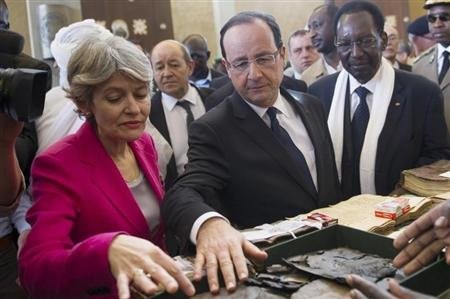 International donors pledged approximately $4.2 billion to the Malian government May 15. This will give Bamako resources to expand its control over northern Mali by buying the loyalty of various impoverished groups, notably its Tuareg population. Outside donors hope this and international security assistance to the country will allow Mali to prevent a recurrence of the jihadist insurgency in the West African country.
International donors pledged approximately $4.2 billion to the Malian government May 15. This will give Bamako resources to expand its control over northern Mali by buying the loyalty of various impoverished groups, notably its Tuareg population. Outside donors hope this and international security assistance to the country will allow Mali to prevent a recurrence of the jihadist insurgency in the West African country.
Before the jihadist takeover of northern Mali, limited financial resources meant Bamako had trouble funding government operations. These constraints meant soldiers deployed in northern Mali in 2011 were ill-equipped and ill-motivated to fight the Tuareg and jihadist insurgency. The military's poor performance fueled discontent with the government among junior officers, culminating in a coup in March 2012 in protest of poor pay and government corruption. The coup in Bamako contributed to the ability of Tuareg militants and al Qaeda in the Islamic Maghreb to expand their control in the north.
To eject the jihadists, the international community led by France provided security support to Mali. Paris is now yielding to an African military stabilization force that will come under U.N. authority in July. This force will consist of more than 12,000 troops receiving Western training and specialized support. The burden for security in northern Mali will not be placed on Malian forces, though perimeter security in Timbuktu, Gao and possibly Kidal along with towns just south of the Niger River will incorporate Malian military forces. Mali's army will receive training and funding allowing it to play a role working alongside U.N. forces.
Now, the international community hopes to build on security successes by helping establish a permanent basis for stability in northern Mali. The newly pledged funds, which are equivalent to approximately two years of Malian government spending and three years of government revenues, will be applied to Bamako's Plan for the Sustainable Recovery of Mali. This two-year program ending in 2014 should allow Bamako to boost its ability to provide basic government services and social and economic development programs in the north.
Whereas southern Mali benefits from an economic sector that can generate jobs and foreign exchange, including gold mining and commercial agriculture, northern Mali has no similar economic foundation. The subsequent lack of development has contributed to strife in the vast region.
For the indigenous and impoverished populations of northern Mali including the Tuareg, who are the dominant ethnic group, the cash will provide a significant incentive to deal with Bamako. At present, northerners' main ways to make a living involve tending livestock in an arid region, smuggling everything from cigarettes to drugs to people, or moving to Bamako to try to find work. Smuggling, the most lucrative of these activities, will continue, but now northerners may have legitimate paths to make living.
Whether Bamako can effectively disburse the new funds remains to be seen. Either way, it does offer Bamako a powerful tool for winning over northern Malians.
Courtesy : Stratfor (www.stratfor.com)